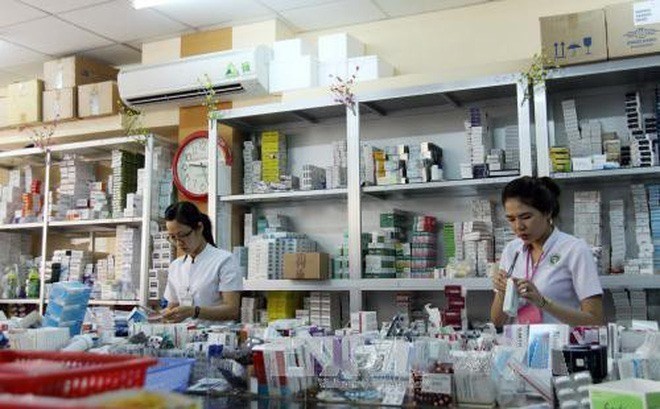
Ensuring adequate and timely supply of medicines, especially for the prevention and treatment of rare diseases and to specialised departments at hospitals, will be the central aspect of HCM City’s Strategy on National Pharmaceutical Development.
The national strategy incorporates plans and targets by provinces and cities based on the local prevalence of diseases and socio-economic status.
By 2020, its last year, the rate of use of medicines made in the country will rise as the city gives priority to pharmaceutical production and obtaining production rights to brand-name drugs.
It will create more conditions for drug manufacturers to invest in technologies for extracting and producing herbal medicines, and cooperate with neighbouring provinces to expand cultivation of medical plants.
Thirty percent of drug manufacturers in the city will meet international standards by 2020.
Forty percent of registered generic medicines produced in the city will match brand-name products in dosage, strength, administration method, quality, performance, and intended use.
All drug stores will follow good distribution and pharmacy practices.
The HCM City Centre for Quality Control of Food, Drug, and Cosmetics will follow good laboratory practices.
All hospitals in the city will have standard warehouses to store medicines and 50 percent of them will set up a clinical pharmacy division by 2020. The figure will rise to 100 percent by 2030.
Clinical pharmacy is vital for ensuring the safe and proper use of medicines, improving the efficacy of treatment and avoiding wastages for patients, according to the University Medical Centre of HCM City.
On the website of the city Department of Health, Dr Nguyen Tri Thanh, head of the University Medical Centre’s general planning division, said it also helps better monitor antibiotic use, reducing drug resistance.
However, one challenge for hospitals is the shortage of human resources in the clinical pharmacy division, causing difficulties for the strategy and making it hard for hospitals to attract and keep clinical pharmacists, the department said.
According to the National Drug Information and Adverse Drug Reaction Monitoring Centre, it has seen an increase in reports on adverse drug reactions at hospitals and by drug manufacturers and distributors from 711 in 2003 to 9754 as of October last year.
























